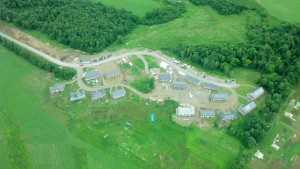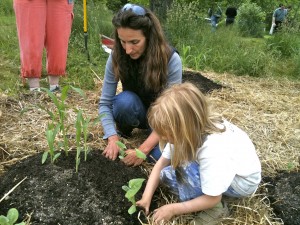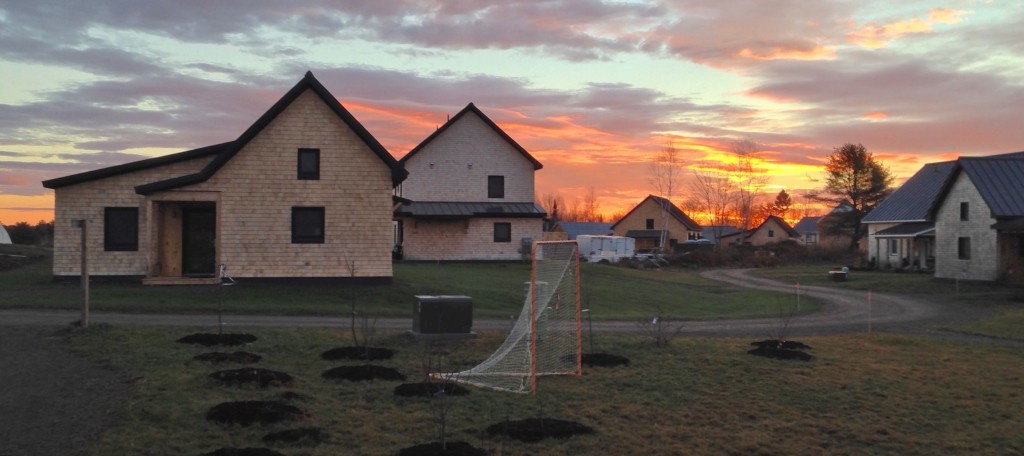Still Water Co-Director Joline Blais and Still Water Research Fellow gkisedtanamoogk both spoke at Building Sustainable Communities: International, National and Local Perspectives, held at the University of Maine from 24-25 October 2014. Both veterans of the LongGreenHouse project, Blais and gkisedtanamoogk brought long-term yet pragmatic visions to this gathering of lawmakers, architects, engineers, and activists.
As the 11th annual conference organized by ESTIA, the International EcoPeace Community, Building Sustainable Communities featured speakers ranging from Congresswoman Chellie Pingree to Engineers Without Borders founder Berard Amadei. ESTIA is the brainchild of Emily Markides of UMaine Peace Studies. gkisedtanamoogk, who is a Bundle Keeper of the Wampanoag Nation, introduced the conference’s primary session on Saturday.
In a panel entitled “Can Local Action Bring Resilience to Maine,” Blais spoke of her work with the Belfast Cohousing & Ecovillage, where she is a founding partner. This 36-home ecovillage on the coast of Maine aims to be a model community of self-governing sustainability. Its home design, by G•O Logic, won the 2011 LEED Project of the Year.
Blais spoke to the successes of Belfast Cohousing & Ecovillage. Apart from net-zero energy homes, the project features a Book of Commons ensuring that all residents can share in a large Common House, an on-site farm, food growing in their backyard, and governance by consensus. Residents are growing food in the local CSA as well as in their own backyards, and monthly activities keep younger kids engaged. The project has been the subject of numerous television, newspaper, and radio stories.
Blais also spoke of some of the challenges facing the ecovillage, including support for families with teens and the tension between legislated regulations and organic governance. Eileen Hagerman presented another project from the UMaine campus for which Blais has been an advisor called the Terrell House Permaculture Living and Learning Center. Resident collaborators for this on-campus laboratory for sustainable practices include Hagerman as well as permaculturalists Dee Clark and Mike Emery.
 Terrell house’s predecessor, LongGreenHouse, was also staffed by college student interns and a family of Native elders, and was based on the Wabanaki Longhouse model and permaculture design principles. Located in a wooded area on the edge of the UMaine campus, LongGreenHouse produced its own food in sustainable gardens, including a four-season greenhouse.
Terrell house’s predecessor, LongGreenHouse, was also staffed by college student interns and a family of Native elders, and was based on the Wabanaki Longhouse model and permaculture design principles. Located in a wooded area on the edge of the UMaine campus, LongGreenHouse produced its own food in sustainable gardens, including a four-season greenhouse.
Other presenters included David Kelly, project manager of Bangor EcoHomes, and Lisa Fernandes of the Resilience Hub and Portland Maine Permaculture.


Linda Spichty Gause liked this on Facebook.
Anna C Allahar liked this on Facebook.